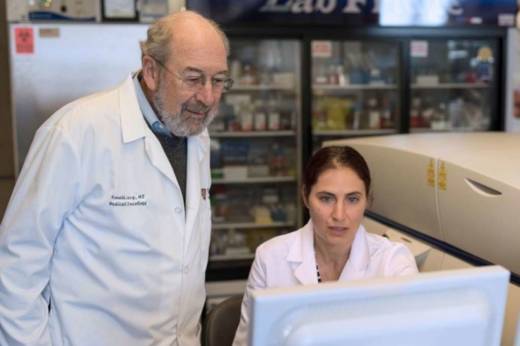A cutting-edge immune system treatment cured certain cancers in 97 percent of mice, and it didn’t require chemotherapy. The treatment is now headed for a human trial at the Stanford University School of Medicine.
Stanford researchers looked at four types of tumors— breast cancer, colon cancer, lymphoma, and melanoma. The clinical trial will, however, be limited to individuals with low-grade lymphoma.
The study, published in journal Science Translational Medicine, is part of a new wave of innovative cancer research focusing on the body's immune system. Recent developments in the field mark a watershed moment in cancer research, says Ronald Levy, a Stanford oncology professor and the study's senior author.
The treatment injects two immune stimulants directly into a tumor. The combination of stimulants activates the immune system's T-cells, the white blood cells responsible for fighting signs of infection in the body. In the successfully treated mice, the activated cells eliminated the entire tumor from the bodies of the mice.
"It's really a very exciting time," says Levy. "These successful therapies have come after decades of work in trying to make the immune system fight the cancer. And now that we know that it's possible, it has brought an enormous amount of interest and investment into the field."
